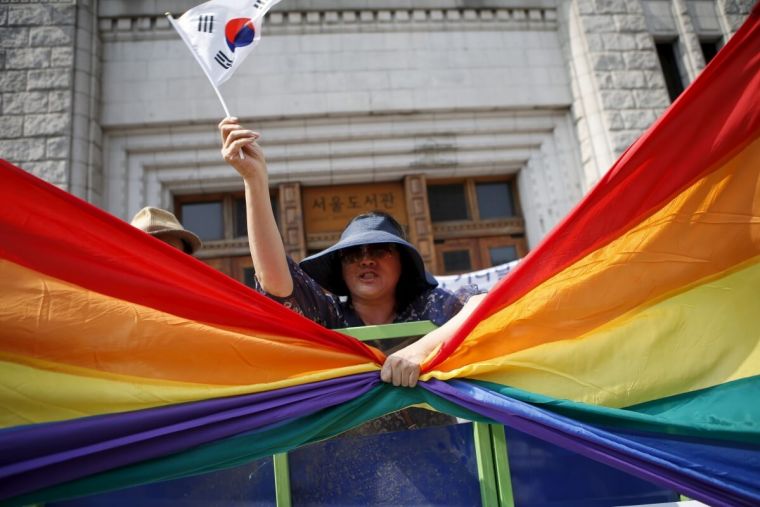Thousands of Christians protest against gay pride march in South Korea

Thousands of Christian protesters took to the streets in South Korea in an attempt to disrupt the gay pride march in Seoul yesterday.
At least 5,000 officers were put on duty to police the march – almost as many police as there were marchers and protesters – as thousands of Christians lay down in the street in a bid to stop it going ahead.
Christian activists had also attempted to prevent the march happening in advance by attempting to book competing events at the same times and places. In addition, protesters had tried to prevent organisers gaining access to the police station to secure the necessary licence for it to take place.
Initially, police were so concerned about possible violence at the event between rival groups that the march was refused a licence. But later a local court issued a permit on the grounds of freedom of speech, and the confidence of the courts in both sides to stay on the right side of the law was justified.
The 5,000 police were used as a human wall to keep the two sets of demonstrators apart. However, despite emotions running high on the day, there were no arrests and no violence. The strongest it got were a few scuffles, some religious songs, anti-gay sermons delivered via megaphones and placards with statements such as: "Homosexuality is against nature."
Kang Myeong-jin, one of the organisers, told marchers: "All of us have come here today to fight against these voices of hatred towards us... It has been a long and tough road, but I'm very happy that the parade was held successfully."
The Pride march came at the end of South Korea's 16th Queer Cultural Festival that began weeks earlier in June. It coincided with similar marches around the world, including the UK, in recent days and weeks.
According to Donald Kirk in Forbes magazine, the protests were organised by leaders of Seoul's powerful Protestant churches. He quotes a Protestant pastor who, asked what he thought of the rally, asked: "Have you heard of Sodom and Gomorrah?" Kirk notes that adultery and prostitution are both common in South Korean society which is lax when it comes to traditional values around marriage and fidelity. Gay marriage hardly ever features in political debate in the country. He described a picnic-style summer atmosphere with dance, laughter and songs.
About a third of South Korea's 50 million people are Christian, about a quarter are Buddhist and the rest agnostic or atheist. Shamanism is an influence in many families also.











